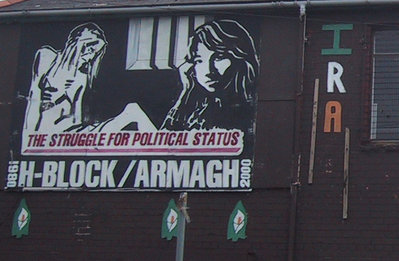In Europe, packaging often gets bad press. Wasteful, inefficient unnecessary--these and other accusations are often thrown at packaging companies by both consumers and green groups seeking to slam the paper industry as an enemy of the environment. How did packaging get such a bad rap in Europe, and what can the industry do about it?
These were some of the themes explored at a recent conference, Meeting the Challenges Ahead in Packaging, in Brussels, Belgium, where industry experts examined some of the legislative challenges facing the sector.
Jane Bickerstaffe, director of Industry Council for Packaging and the Environment (Incpen), believes there is a short answer to why packaging has come under such close regulatory scrutiny in Europe over the past decade.
"Politicians find it difficult to challenge the big environmental issues, for example, lifestyle and private ownership, because they don't want to offend voters," she says. "Packaging is an easy scapegoat. Voters support restrictions on packaging, in theory, because they think environmental legislation in general is good and packaging is bad."
Bickerstaffe went on to point out that while the industry had done much to improve packaging and reduce its negative environmental footprint through recycling, new designs and lightweighting, the public was often unaware of the progress made by the sector to date.
Just as importantly, she raised the issue of refillable containers versus one-way packs. Bickerstaffe explains that while there was little or no scientific evidence to show that one type of packaging was clearly superior to the other in environmental terms, there was no shortage of advocates for refillables among the so-called green groups.
Another speaker, Gary Parker of the U.K. consultancy Pira, argued that this was really an argument about lifestyles. On one hand, modern distribution systems are better suited to one-way packaging as the world gets 'smaller' and products are transported over greater distances. But for many green groups, big business and international trade are negative aspects of modern society.
"For many of them, this is really a localization versus globalization issue," he explains.
Parker has done a lot of work on the impact packaging has had on the environment over the years, particularly in relation to the European Commission's Packaging and Packaging Waste Directive, which provides the regulatory framework for the packaging sector in Europe. As Parker points out, the arguments about one-trip versus refillable packaging are often driven by agendas outside the reach of the sector.
"Common sense suggests that reusable plastic crates and trays should be better over short distances and one-way better over longer distances. But in truth, the science just isn't there to support that," Parker says.
"For example, look at trip rates. If a crate gets lost after one trip then it's an environmental disaster. Capital also has a big impact. If you've invested millions of euros in a system then you're going to have an entrenched position. In my opinion the argument isn't really a scientific discussion, it's a political one."
Parker points to several studies that showed certain results in favor of re-use and others that appeared to support one-way packaging, but he notes the differences were often marginal at best, and "widely varying conclusions were reached--inline with the reality of reusable packaging systems."
The main point reinforced with each study and by the host of life cycle analysis (LCAs) that have been carried out on the subject is that the dynamics of packaging systems are complex--as anyone in the business will already know.
Transport distances, trip rates, weight, volume, back-loading, end-of-life, float, marketing, and more all have an influence on the results of any specific LCA, so trying to use this approach to frame legislation and determine environmental winners is bound to be fraught with possibly insurmountable difficulties.
Yet despite the lack of clear-cut results in favor of one system or the other, there are still plenty of environmental non-governmental organizations (ENGOs) and even a few companies who support re-use over one-way packaging.
For certain companies, supporting re-use obviously makes sense, not least because it helps reduce competition as Europeans have seen from very well-publicized "can bans" in Denmark and, more recently, in Germany where local beer producers were extremely supportive of legislation the demanded the use of refillables. For the ENGOs though, the debate is more about tackling the perceived ill effects of globalization.
Summing up his presentation, Parker indicated that the idea of providing legislative support for re-use versus one-way packaging could be viewed as a series of, often political, issues:
* Science: appropriate in limited cases;
* Logic: is it not possible to achieve a higher return on investment in other environmental areas?
* The EU internal market: the risks may outweigh the benefits;
* Economic theory: it is difficult to support uncompetitive industries;
* Social: is re-use highly valued; and
* Sustainable development: localization considered appropriate by some stakeholders.
The hard fact remains that consumer patterns have changed. Europeans have become accustomed to greater choice as international trade barriers have been broken down and convenience food is now a normal part of life. The cost structure of packaging has also changed in that materials costs have come down as labor costs have risen, and these effects have combined to make one-trip packaging more appropriate for many products.
Added to all that, there is always the economic argument that companies will always seek to use the minimum amount of packaging simply because it lowers their costs.
The audience was left with no doubt that the ongoing arguments over the benefits of re-use versus one-way packaging will continue to rage on a number of different fronts, including cost, performance, sustainability, and open market issues.
Politics is likely to play just as large role, and that means that the industry has to be an active participant in the dialogue between stakeholders. As a member of the audience pointed out during the Q&A session, "Supporting refillables over one-trip packaging is really about protecting local jobs, but at the top end of the hierarchies involved in this debate you'll never find anyone to say that out loud."
With so much at stake, it is clear that the industry will have to continue to lobby hard if packaging suppliers are not to be bound ever tighter by legislation that could influence both consumer choice and the openness of the European internal market.
COPYRIGHT 2005 Advanstar Communications, Inc.
COPYRIGHT 2005 Gale Group




